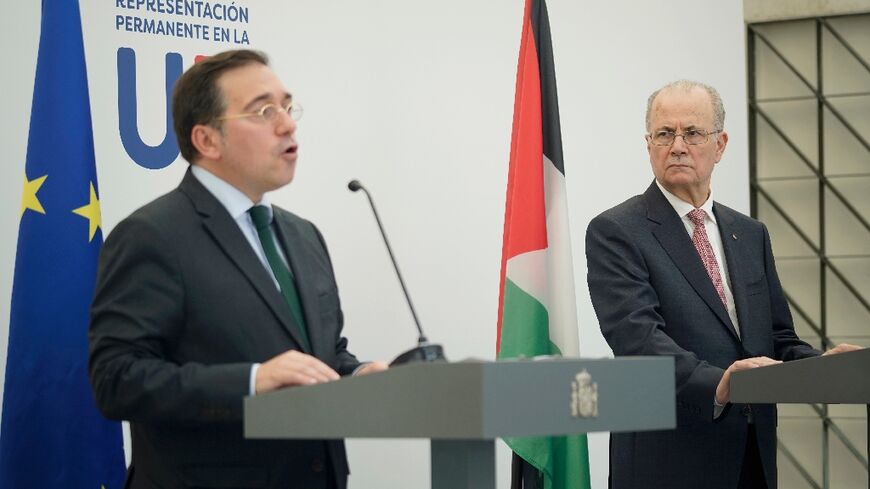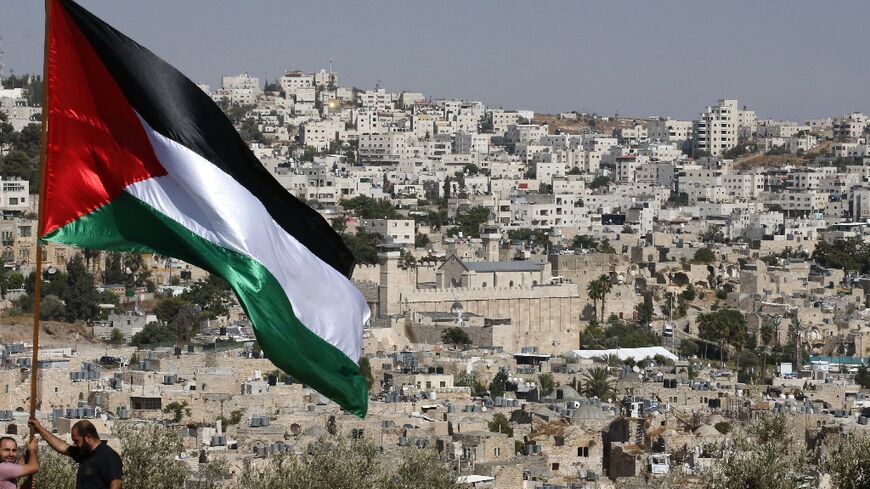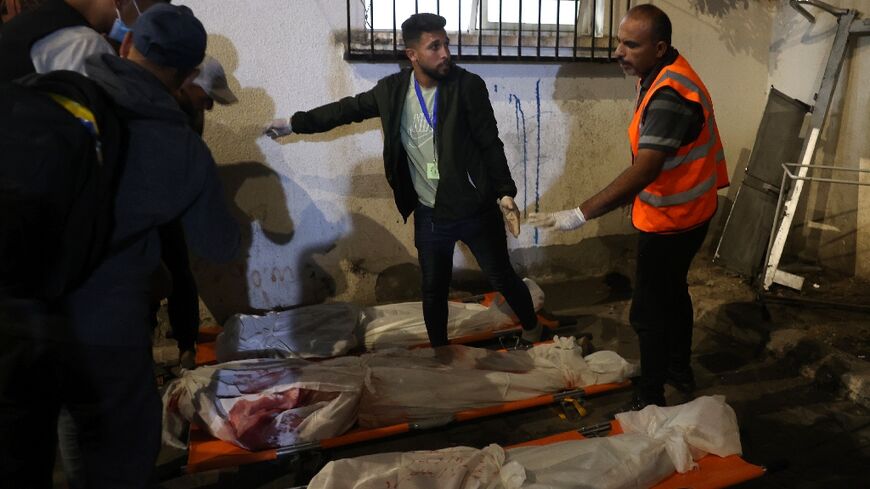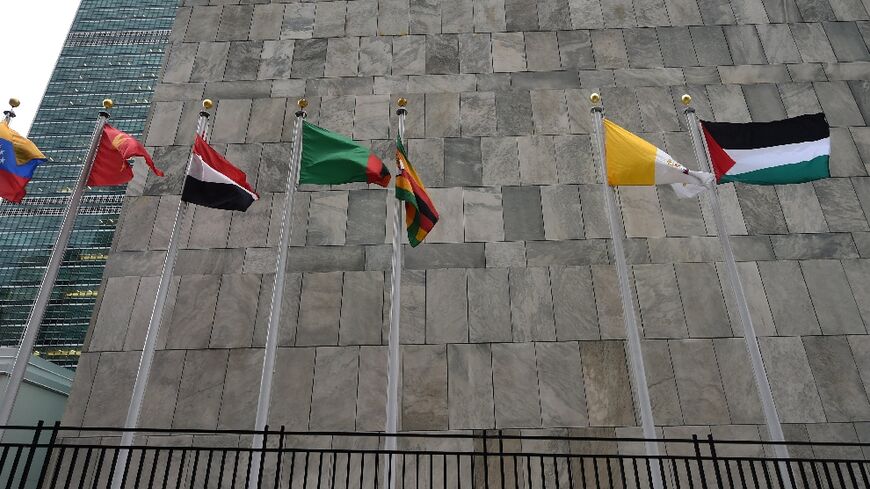EU hosts talks to strengthen Palestinian Authority for Gaza
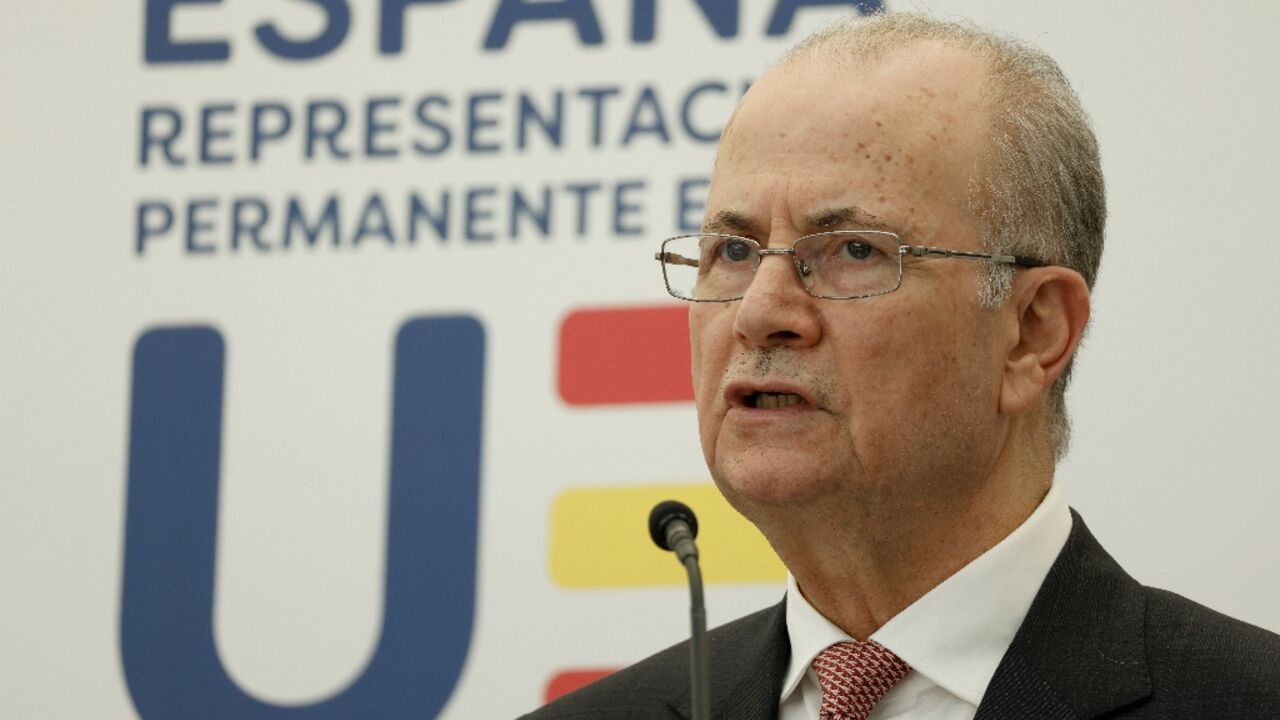
EU foreign policy chief Josep Borrell on Sunday hosted Palestinian prime minister Mohammed Mustafa for international talks on building up the Palestinian Authority to eventually take over Gaza rule from Hamas.
A "strong" Palestinian Authority is needed to bring peace in the Middle East, Borrell said just before going into the meeting with Mustafa.
The talks were being held as efforts were narrowing to try to find a Gaza truce and a hostage-release deal.
They also came just before Norway -- which was hosting the Brussels meeting -- was on Tuesday is to recognise the State of Palestine, along with Spain and Ireland, to Israel's fury.
While the United States is using its influence to halt the Gaza war, moves are starting to take place to try to establish conditions to make for lasting peace.
A key requisite for that is the removal of Hamas as Gaza's rulers. The only viable option diplomats have arrived at is to bolster Mustafa's Palestinian Authority, which controls the West Bank, so that it can take charge of Gaza.
The war in Gaza was triggered by Hamas's October 7 attack in Israel, in which 1,170 people were killed, mostly civilians, according to an AFP tally based on Israeli figures.
Militants also took 252 hostages, 121 of whom remain in Gaza, including 37 the army says are dead.
Israel's retaliatory offensive has killed at least 35,984 people in Gaza, mostly civilians, according to the Hamas-run territory's health ministry.
"A functional Palestinian Authority is in Israel's interest too, because in order to make peace, we need a strong Palestinian Authority, not a weaker one," Borrell said.
- Plea for funds -
Mustafa said Sunday's meeting was "a very important opportunity" for the Palestinian Authority to outline its priorities and plans.
He said the "first priority" was to support Palestinians in Gaza, especially through a ceasefire, and then the "rebuilding the institutions of the Palestinian Authority" in that territory, which Hamas seized control of in 2007.
He also called on international partners to press Israel to release Palestinian Authority funds so "we will be ready to reform our institutions... and hopefully together sustain our efforts towards statehood and peace for the region".
The Brussels meeting, focused on international aid, was being chaired by Norwegian Foreign Minister Espen Barth Eide, under his country's key role in the 1993 Oslo Accords that established a series of arrangements between the Palestinians and Israel.
"We need to make sure that the Palestinian Authority... has to be able to survive to be strengthened, to improve its capacity to deliver services, to reform, and also to plan for a future return to Gaza," Barth Eide said.
- Israel's fury -
Represented at the talks, alongside the EU, Norway and the Palestinian Authority, were Saudi Arabia, Egypt, Jordan, Qatar, the United Arab Emirates, Tunisia and the International Monetary Fund and the United Nations.
Australia, Britain, Canada and Japan also took part.
Before the talks, Mustafa held a separate news conference with Spanish Foreign Minister Jose Manuel Albare to thank him for his country's announcement it was recognising Palestinian statehood.
The move by the three European nations addresses "the injustice that has been inflicted on the Palestinian people for decades," Mustafa said, adding: "We want to have every country in Europe to do the same."
Later Sunday, Mustafa was to have further talks with Borrell, Barth Eide and Saudi Foreign Minister Prince Faisal bin Farhan.
On Monday he will have another meeting in Brussels with the Spanish, Norwegian and Irish ministers. And on Wednesday he will be in Spain.
Israel has warned Spain, Norway and Ireland that ties with them will face "serious consequences" for their announced recognition of a Palestinian state.
A majority of UN member countries recognise Palestinian statehood. European countries are split on the issue.
Spain, Norway and Italy will join EU nations Bulgaria, Cyprus, the Czech Republic, Hungary, Poland, Romania and Sweden in recognising the State of Palestine.


